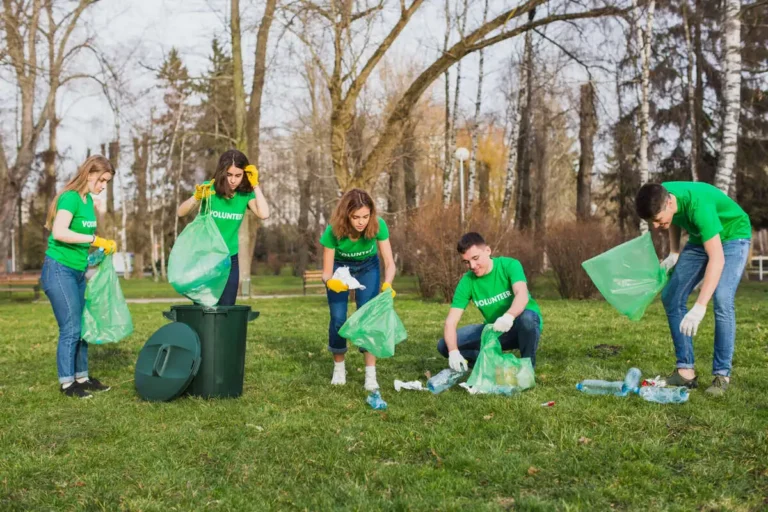Picture this: a morning walk in a park, the smell of fresh grass, the sound of birds chirping. Everything feels calm and beautiful. Then suddenly you see trash scattered on the ground. It breaks the moment. Scenes like this make us stop and think: What are we doing to our planet? How can we keep our surroundings clean?
Keeping the environment clean is not just about appearance. It’s about protecting nature so plants can grow, animals can thrive, and we can breathe fresh air and drink safe water. When we ignore cleanliness, pollution takes over. It affects our health and damages the Earth’s ability to sustain life.
Now, imagine a world with less waste, where we reuse and recycle things instead of throwing them away. That’s what sustainable and zero-waste living is all about.
So, why does environment cleanliness matter? And why should it matter to you? Let’s dive into the many reasons why a clean environment is important for a sustainable world. Along the way, you’ll discover how even small actions can create a big impact, and how you can be part of the solution.
10 Reasons Why Environmental Cleanliness is Important
1. Protects Public Health
Did you know that pollution causes over 7 million deaths every year, according to the World Health Organization (WHO)? That’s a staggering number.
A clean environment means less exposure to harmful pollutants present in air, water, and soil. It helps prevent breathing problems, skin allergies, and waterborne diseases. As a result, fewer people visit hospitals, and communities stay healthier and stronger.
In short, a clean environment leads to better health and quality of life for everyone.
2. Conserves Natural Resources
When we keep our environment clean by reducing and recycling, we help conserve natural resources like water, forests, and minerals. For example, recycling one ton of paper can save around 17 trees and 7,000 gallons of water. Keeping our surroundings clean, we help ensure that future generations will still have access to the resources they need.
3. Reduces Pollution
Littering and poor waste disposal contribute to air, water, and soil pollution. When you throw garbage on the ground or in the wrong place, it doesn’t just disappear.
Did you know a single plastic bag takes up to 1,000 years to decompose?
During this decomposition process, it releases harmful chemicals into the environment, making the air toxic and contaminating the water we drink. Proper waste management prevents pollutants from contaminating our ecosystems, keeping our air breathable and water drinkable.
4. Enhances Biodiversity
A clean environment helps wildlife thrive in safe and healthy habitats. When we allow pollution to spread, we destroy the natural habitat of flora and fauna. As a result, many plants and animals struggle to survive and some even face extinction.
For example, think about bees. They play a major role in pollinating crops and plants. Food production suffers if we lose them due to pollution or habitat loss. If there are no bees, there will be no pollination, and that threatens our food supply.
By keeping clean surroundings, we protect the plants, insects, birds, and animals.
5. Combats Climate Change
Cleanliness plays a key role in reducing greenhouse gas emissions. For instance, when you compost food scraps and organic waste, you prevent them from ending up in landfills.
By choosing to compost instead, you help cut down methane emissions. Over time, these simple habits can make a real difference in fighting global warming and protecting our planet.
6. Improves Quality of Life
Have you ever stepped into a clean, green park and felt instantly uplifted? That’s no coincidence.
Clean surroundings boost mental well-being by creating a peaceful and refreshing atmosphere. They help reduce stress, improve focus, and make you feel more at ease. When public spaces are clean, people feel more motivated to spend time outdoors.
Cleanliness of the environment encourages walking, exercising, and socializing. Plus, it builds a sense of pride and responsibility within communities.
7. Boosts Economic Growth
Environmental cleanliness promotes eco-tourism and sustainable business practices. When cities, beaches, and natural sites stay clean, they attract more tourists. As a result, local hotels, restaurants, and shops earn more income.
In short, maintaining cleanliness protects nature and creates jobs and strengthens local communities.
8. Builds Resilient Communities
Communities prioritizing cleanliness are better equipped to handle disasters like floods and pandemics. Clean streets and proper waste disposal help prevent clogged drains, which reduces the risk of floods. At the same time, good hygiene and sanitation control the spread of diseases during pandemics.
By managing waste and water systems well, communities can protect public health and the environment. In the long run, this makes them more resilient and more sustainable.
9. Minimizes Waste
When we manage waste effectively through segregation, recycling, and composting, we reduce the amount of waste in landfills. This reduces the strain on land resources and protects the soil from harmful chemicals leaking from untreated waste. As a result, our environment stays cleaner and safer.
Good waste management also supports a circular economy, where we reuse and repurpose items instead of throwing them away. In the long run, this helps conserve natural resources and reduces our impact on the planet.
10. Supports Global Sustainability Goals
Environmental cleanliness plays a big role in achieving the United Nations Sustainable Development Goals (SDGs). For example, it supports clean water and sanitation (SDG 6) and helps create sustainable cities and communities (SDG 11). Your commitment to cleanliness supports global initiatives and helps build a brighter future for everyone.
Conclusion: Why Environment Cleanliness Matters
The importance of environment cleanliness goes far beyond having tidy surroundings. It protects your health, supports nature, and reduces pollution. Clean surroundings also lower the risk of disease, improve air and water quality, and even fight climate change.
You don’t need to make big changes to help. Simple actions like recycling, composting, reusing items, and avoiding littering can go a long way.
The importance of maintaining environment cleanliness is something we should remember. We can build a cleaner, greener, and more sustainable future for everyone.




